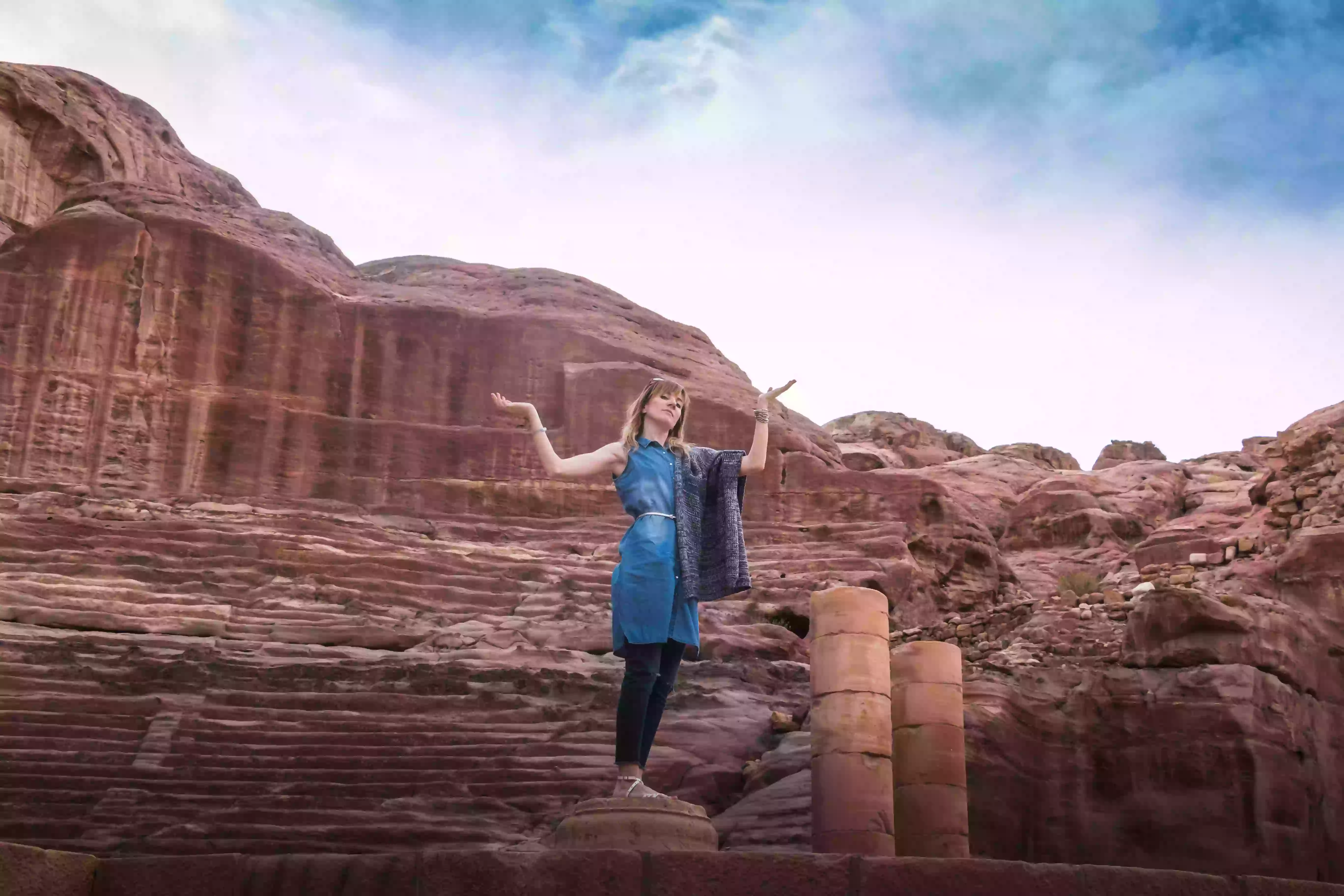Explore Jordan Like a Pro: 10 Essential Tips for Your Travel Adventure
Morgan Wiggins
Apr02,2023 • 4 min read

JTravelers to Jordan should take basic health and safety precautions to ensure a safe and enjoyable trip. Visitors should drink bottled or boiled water, avoid eating food from street vendors, and ensure that they are up-to-date with routine vaccinations. It's also important to be aware of your surroundings and avoid political demonstrations or protests. Visitors should also be aware of the risks of petty crime, such as pickpocketing, and take appropriate precautions to protect their belongings.
ordan is a beautiful country with a rich history and culture, and it offers a unique travel experience for adventurers who are willing to explore it like a pro. However, to make the most of your trip. It's important to be well-prepared and informed about Jordan's culture, customs, language, currency, and transportation options.
Culture and Customs
Jordan has a rich cultural heritage that is shaped by its ancient history, Bedouin traditions, and Islamic heritage. Visitors should be respectful of Jordanian culture and customs by dressing modestly, particularly when visiting religious sites. It is also customary to remove your shoes before entering someone's home or a mosque. Jordanians are generally hospitable and friendly, so it's always a good idea to greet people with a smile and a friendly hello.
Language and Communication
Arabic is the official language of Jordan, but English is widely spoken in tourist areas and hotels. However, it's always helpful to learn some basic Arabic phrases such as "hello" (Marhaba), "thank you" (shukran), and "goodbye" (ma'asalama) to show respect for the local culture and make communication easier.
Best Time to Visit
The best time to visit Jordan is Spring (March to May) and fall (September to November) when the weather is mild and comfortable for outdoor activities. Summer can be extremely hot, particularly in the desert areas, and winter can be chilly with occasional snowfall. It's also important to note that Ramadan, the Islamic month of fasting, is observed in Jordan, and visitors should be respectful of this religious observance.
Currency and Exchange Rates
The currency used in Jordan is the Jordanian Dinar (JOD), which is widely available in banks and exchange offices. Visitors can also withdraw cash from ATMs which are found throughout the country. It's important to note that credit cards are widely accepted in hotels, restaurants, and shops, but cash is necessary for small transactions and in more rural areas.
Transportation Options
There are several transportation options available in Jordan, including taxis, buses, and rental cars. Taxis are readily available in urban areas, but visitors should negotiate the fare before getting in. Buses are a more affordable option but can be crowded and uncomfortable. Rental cars are available in major cities, but visitors should be aware of local driving customs and regulations.
Local Cuisine and Dining Options
Jordanian cuisine is a blend of traditional Arabic dishes, Mediterranean flavors, and local ingredients. Some popular dishes to try include mansaf (a traditional Bedouin dish of lamb cooked in a yogurt sauce and served with rice), falafel (deep-fried chickpea balls), and hummus (a dip made from chickpeas, tahini, and lemon juice). Visitors should also try the local bread, cooked in wood-fired ovens, and served warm with every meal. Jordan has a wide range of dining options, from casual street vendors to high-end restaurants should explore the local food scene for an authentic taste of Jordanian culture.
Health and Safety Considerations
Travelers to Jordan should take basic health and safety precautions to ensure a safe and enjoyable trip. Visitors should drink bottled or boiled water, avoid eating food from street vendors, and ensure that they are up-to-date with routine vaccinations. It's also important to be aware of your surroundings and avoid political demonstrations or protests. Visitors should also be aware of the risks of petty crime, such as pickpocketing, and take appropriate precautions to protect their belongings.
Etiquette and social norms in Jordan
Jordan is a country that values respect, hospitality, and generosity. It is customary for locals to greet each other with "As-salam Alaykum," which means "peace be upon you." It is essential to dress modestly and conservatively in public, particularly for women, who should cover their shoulders and knees. Public displays of affection are frowned upon, and it is essential to be polite and respectful to elders and authority figures. In Jordanian culture, it is customary to remove shoes when entering someone's home, and it is a sign of respect to bring a small gift for the host.
Weather and climate in Jordan
Jordan has a predominantly arid desert climate, with hot summers and cool winters. The best time to visit Jordan is during the spring (March to May) and fall (September to November) seasons when the weather is mild and pleasant. Summers can be scorching, with temperatures reaching 40°C, while winters can be chilly, particularly in higher elevations. Jordan receives little rainfall, primarily in the winter months, and visitors should be prepared for dry weather conditions throughout the year.
Shopping and souvenirs in Jordan
Jordan is famous for its traditional handicrafts, including pottery, woven textiles, and intricately designed glassware. Visitors can find these unique items at the numerous souks (markets) scattered throughout the country. One of the most famous souks is the Al Balad market in Amman, where visitors can find an array of souvenirs, including Bedouin jewelry, spices, and handmade soap. Bargaining is customary in Jordan, and visitors should be prepared to haggle over prices. It is also important to note that many shops and markets close on Fridays, the Muslim day of prayer.
Conclusion
Jordan offers a unique travel adventure for visitors willing to explore its rich history, culture, and natural beauty. By being well-prepared and informed about Jordan's customs, language, currency, and transportation options, travelers can make the most of their trip and experience Jordan like a pro.

